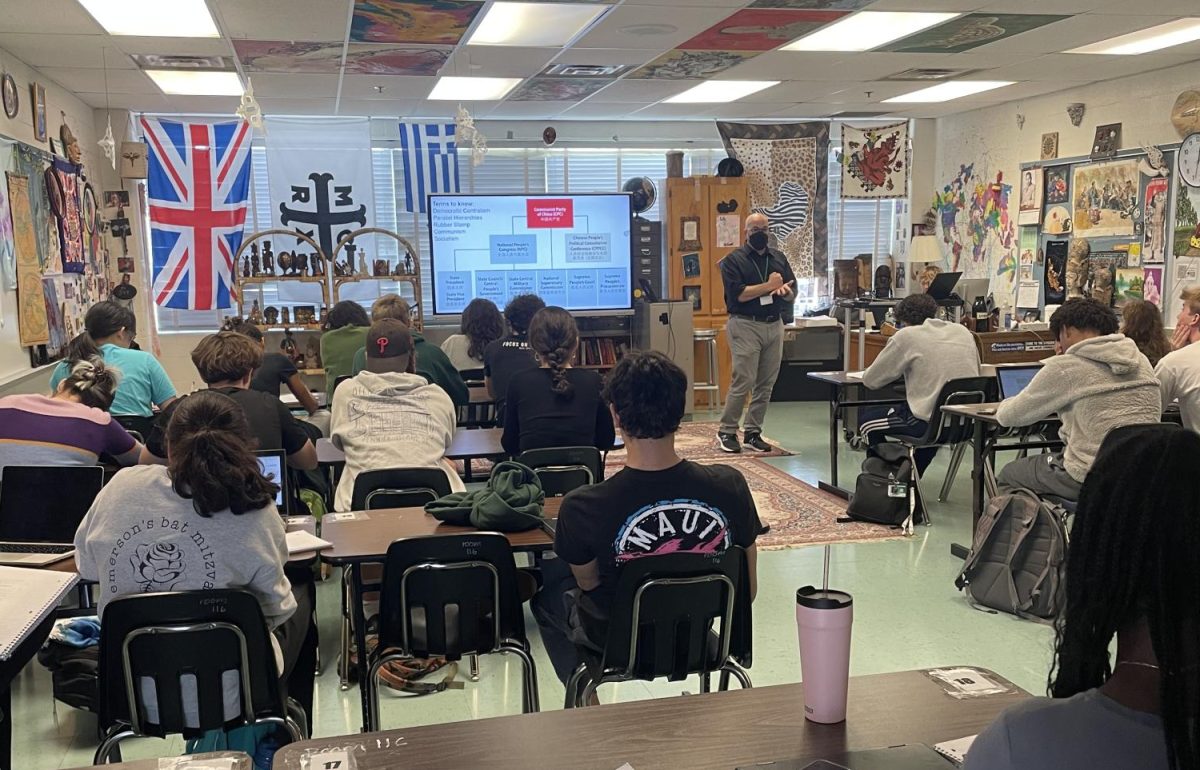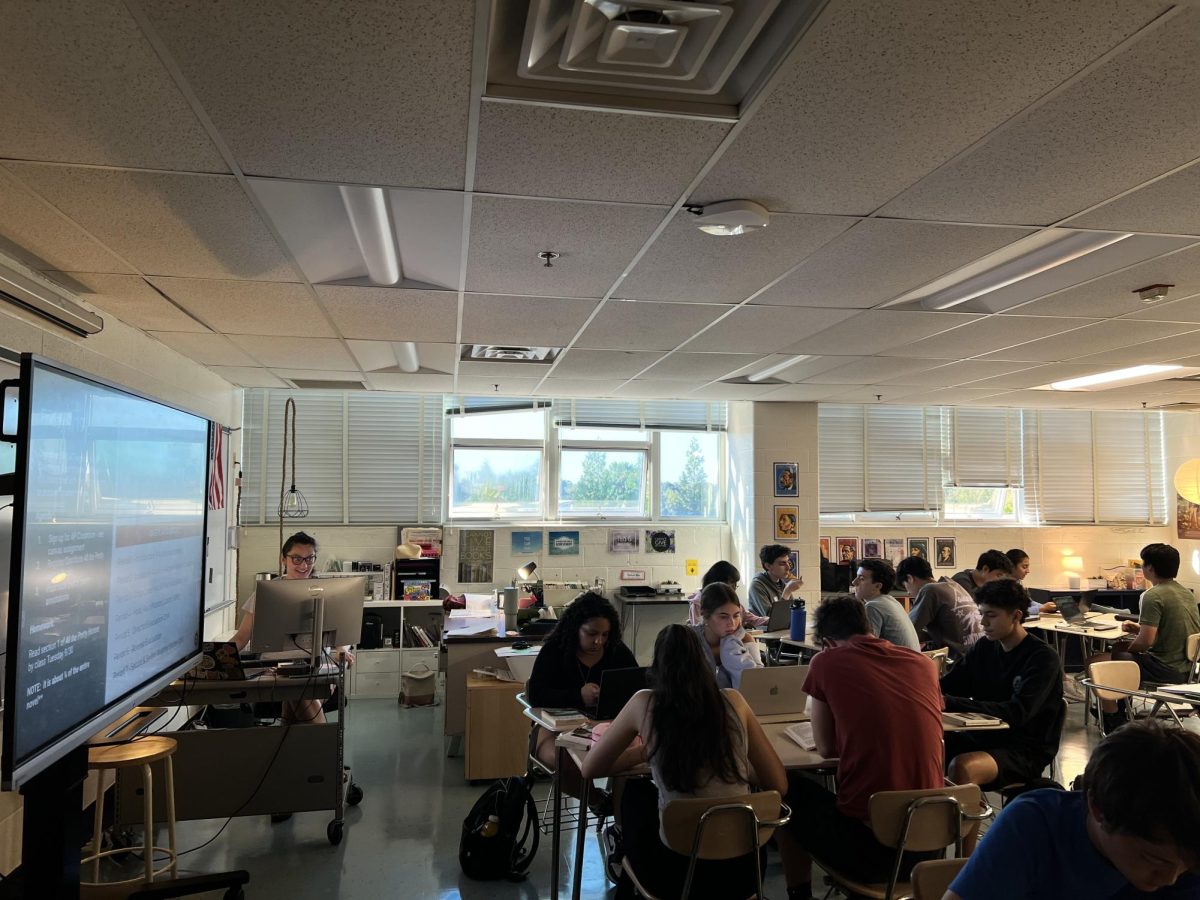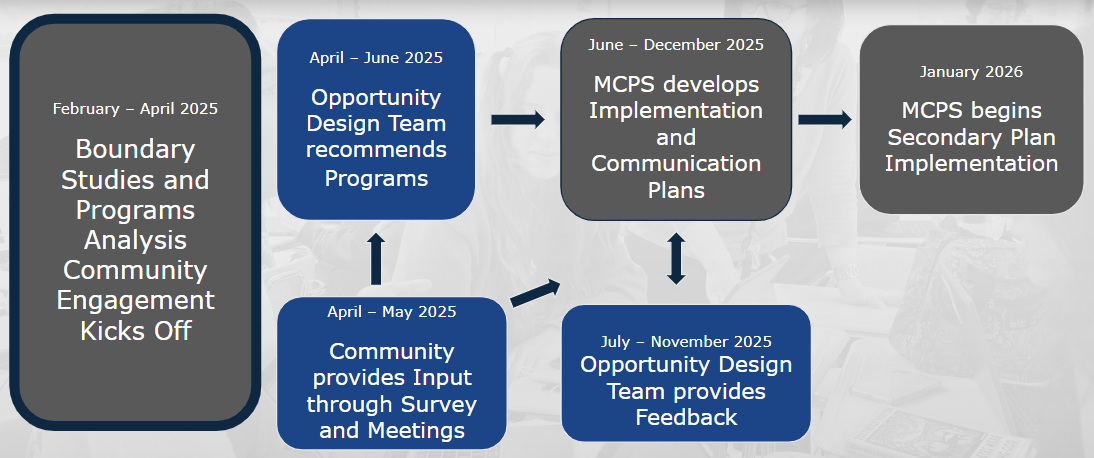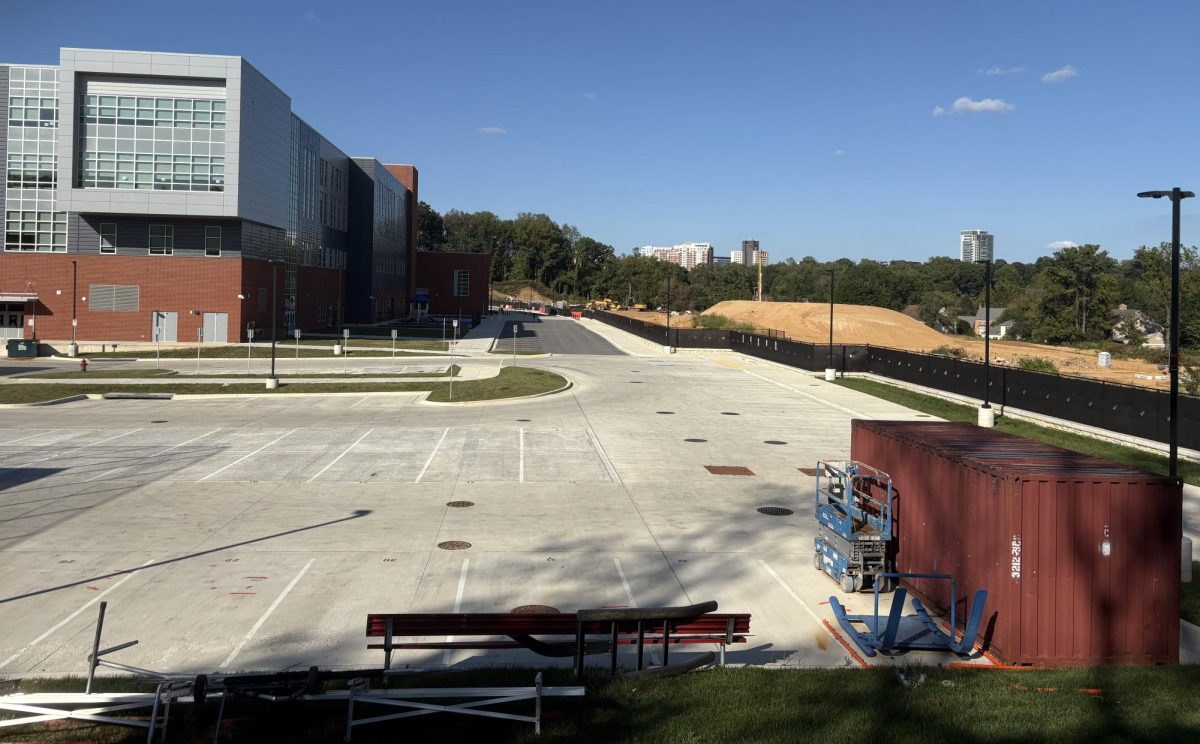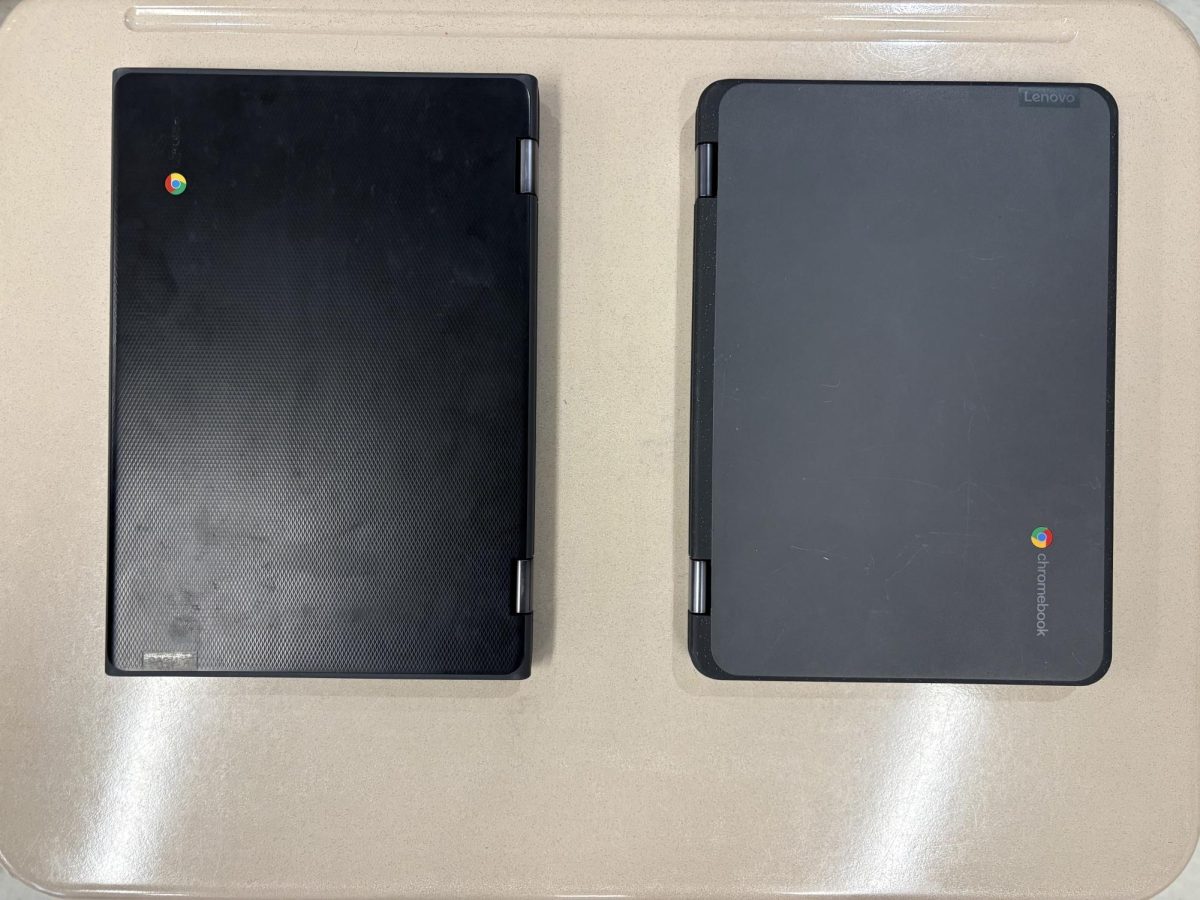Many WJ teachers have cracked down on in-class phone usage this year.
While the official school and MCPS policies of students not being allowed to use personal mobile devices (PMDs) in the classroom have been the same since 2022, teachers rarely enforced these policies at WJ.
This year, some teachers have instructed their students to place their phones in cubbies on a classroom wall, while others make students leave theirs in their backpacks, out of sight.
Following suit with her fellow science teachers, Stephanie Deonarain has her students place their phones in clear boxes on their desks.
“This way it’s visible. I can see that it’s put away,” Deonarain said. “You don’t have it hiding under your desk and you also have it in front of you, so there’s less of that withdrawal.”
Recent research has shown that phones can have harmful effects on teens’ mental health.
“You don’t learn as much; you don’t retain as much,” Deonarain said. “We’ve got all the evidence that shows it’s detrimental to learning in your education, so I’m hoping maybe we can take that gap back.”
One issue that teachers say phones create is a lack of participation and a decrease in classroom community.
“I’ve noticed less and less engagement of the students with each other in the room with me,” social studies teacher Frederick Delello said. “One of my most important things is building relationships and getting to know students and walking around and talking, and that was decreasing because students were distracted by their phones.”
So far, Delello says his policy of students leaving their phones in a cubby before class has been effective.
“They are definitely talking more to each other,” Delello said.
The change in attitude comes as schools across the country are questioning whether phones should be allowed in schools at all. In June, the Los Angeles Unified School District, the second largest school district in the nation, decided to ban phones altogether on campus during the school day.
Currently, the MCPS rule is that PMD use is prohibited in class unless authorized by the teacher for instructional purposes, allowed during lunch and up to the discretion of the principal between classes. MCPS announced in August that they would pilot an “All-Day Away Phone Policy” for schools that opted in before Sept. 2.
“WJ does not have plans to do that because that’s pretty drastic,” Assistant Principal Regina Rodriguez said. “I know some schools are piloting it, but it’s really not something that we wanted.”
Rodgriguez says one of the main factors in this decision is that they are treating cell phone use like other addictions.
“We understand having the phones is kind of an addiction, and you wouldn’t just take away something that somebody’s addicted to like that, you would slowly get them off and make them not want to be on it,” Rodriguez said.
MCPS restricted use of social media sites such as Instagram on school Wi-Fi prior to this school year.
Inconsistency regarding cell phone use has been met with complaints since there’s no uniform school policy. While many students have been impacted by the new policy enforcement, others like senior Helen Besch “don’t see much of a change.”
“I feel like if you’re going to enforce the rule, it shouldn’t be on and off,” freshman Daniel Huang said. “That’s probably the most annoying thing about this because sometimes you can use it, sometimes you can’t, and some teachers enforce it more heavily than others.”
Some believe that increasing enforcement will not solve the problem in many cases, and is unfair to students who finish work on time.
“I think what we had before was fine, and that teachers would say that you can have your phone when you are done with your work,” sophomore Carina Izmukhambetova said. “I don’t see how this would help with the phone situation because if a kid wants to use their phone, they’re going to find a way.”


